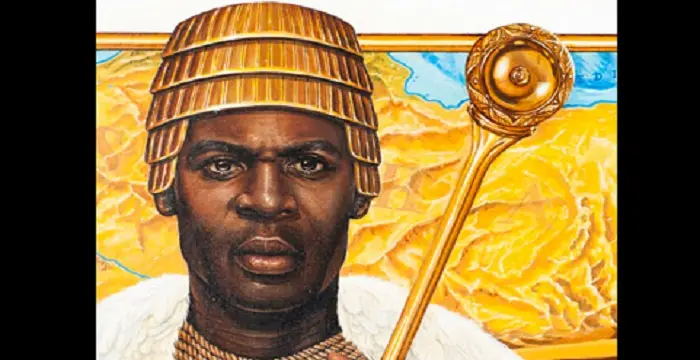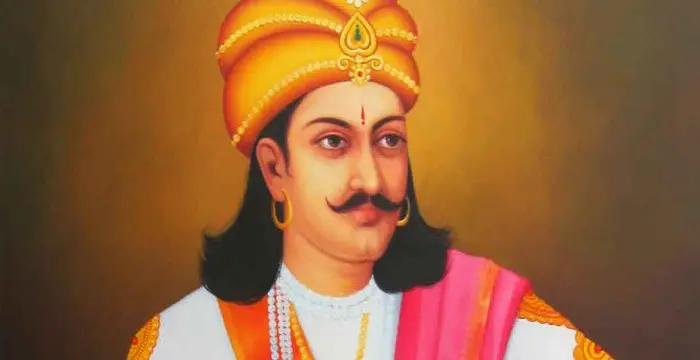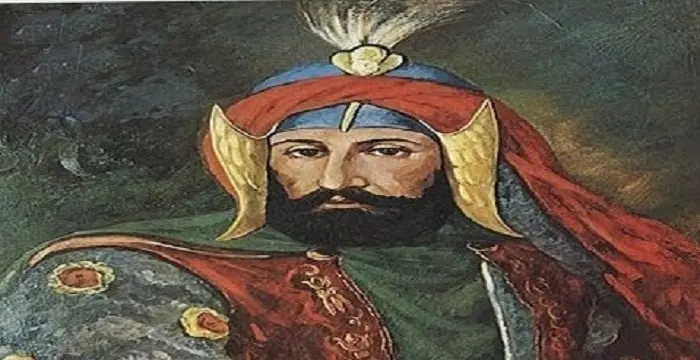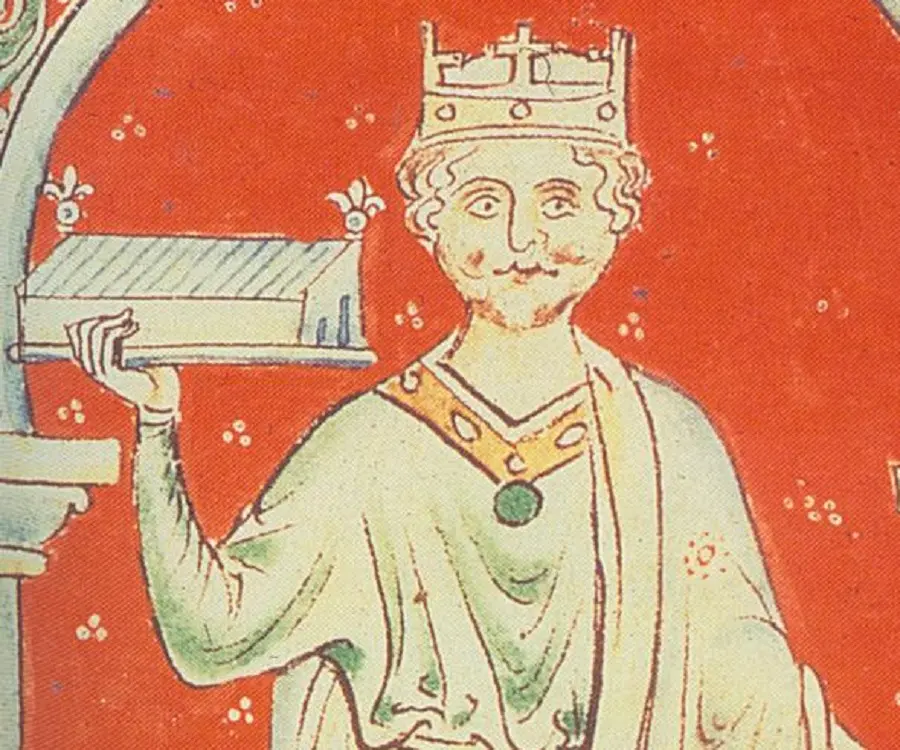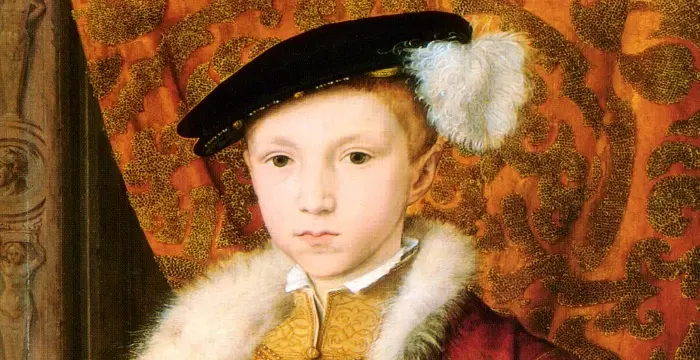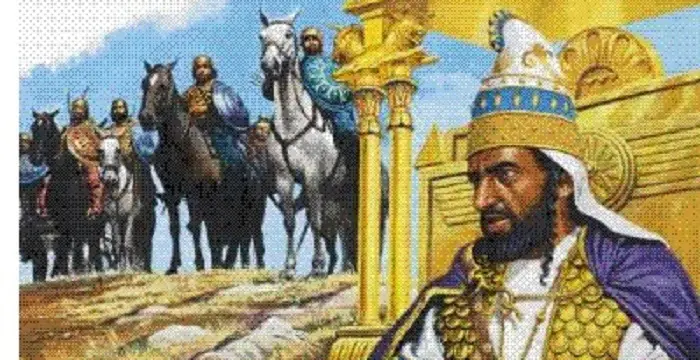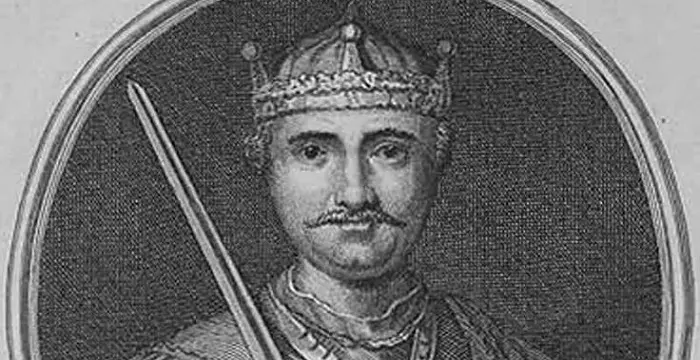
William II of England - King of England, Career and Childhood
William II of England's Personal Details
William II (Rufus) was the King of England from 1087 to 1100 who ascended the throne upon the death of his father, William I the Conqueror.
| Information | Detail |
|---|---|
| Birthday | 1056 |
| Died on | August 2, 1100 |
| Nationality | British |
| Famous | Historical Personalities, Emperors & Kings, Emperors, King of England, Kings |
| Siblings | Henry I of England |
| Known as | William Rufus |
| Cause of death |
|
| Birth Place | Normandy |
| Gender | Male |
| Father | William the Conqueror |
| Mother | Matilda of Flanders |
| Born in | Normandy |
| Famous as | King of England |
| Died at Age | 44 |
// Famous Kings
Sundiata Keita
Sundiata Keita was the founder of the Mali Empire in West Africa. This biography profiles his childhood, early life, struggles, founding of empire, rule, administration, achievements and also gives some fun facts.
Ashoka
Ashoka was the third emperor of the Mauryan Dynasty and ruled almost the entire Indian subcontinent. This biography profiles his childhood, life, reign, achievements and timeline
Murad IV
Murad IV was one of the mighty Sultans in the history of the Ottoman Empire. This biography profiles his childhood, family, accession, rule, administration and timeline.
William II of England's photo
Who is William II of England?
William II (Rufus) was the King of England from 1087 to 1100 who ascended the throne upon the death of his father, William I the Conqueror. Born in Normandy around 1056, William II or William Rufus, so named after his ruddy complexion, was the second surviving and the favorite son of William I. Upon his death in 1087, William I bequeathed his inheritance, the Dukedom of Normandy, to his eldest son, Robert Curthose and gave England to William Rufus. Shortly after inheriting the English throne, William II faced a baronial uprising to overthrow him in favor of his elder brother, Robert. But, with loyalty and support from most of the Englishmen, William II was able to defeat the rebellion and secure his authority. Afterwards, he laid claim to Normandy and waged war against Robert, and also seized lands from his younger brother, Henry. During his reign as the King of England, William II faced several revolts from kings and barons but soon crushed them viciously and emerged triumphant. Later, when Robert went on Crusade, he mortgaged Normandy to William II in return of money and thereafter, William II also ruled over Normandy as ‘de facto duke’ until his death. William Rufus was accidently killed while hunting in the forest, an incident which some believe to be an assassination plotted by his younger brother, Henry, who later seized the English throne.
// Famous Emperors
Sundiata Keita
Sundiata Keita was the founder of the Mali Empire in West Africa. This biography profiles his childhood, early life, struggles, founding of empire, rule, administration, achievements and also gives some fun facts.
Ashoka
Ashoka was the third emperor of the Mauryan Dynasty and ruled almost the entire Indian subcontinent. This biography profiles his childhood, life, reign, achievements and timeline
Murad IV
Murad IV was one of the mighty Sultans in the history of the Ottoman Empire. This biography profiles his childhood, family, accession, rule, administration and timeline.
Childhood & Early Life
William II or William Rufus was born around 1056 in Normandy, to William I the Conqueror, the King of England, and his wife, Matilda of Flanders. He was the third of four sons born in the royal family and also had several sisters.
Rufus had two elder brothers, Robert Curthose and Richard. In an unfortunate incident, Richard died around 1075 while hunting in the New Forest. Rufus also had a younger brother, Henry, and several sisters including Adela, Cecily, Agatha, and Constance.
Historical accounts suggest sibling rivalry and strained relations among the three surviving sons of William I. William Rufus or William Red, so named for his ruddy complexion, was believed to be King’s favorite son. Rufus received education from the Lanfranc of Pavia.
Accession & Reign
Shortly before his death, William I bequeathed his inheritance among his sons in accordance with feudal custom. He gave the Duchy of Normandy to his eldest son, Robert, left a sum of money to Henry, and declared William as his successor to the English throne.
Upon his father’s death in 1087, William Rufus ascended the throne and became the King of England. He was crowned the King by Lanfranc, the Archbishop of Canterbury, in September 1087.
Many nobles who owned lands on both sides of the English Channel wanted England and Normandy to remain under one ruler. They waged a revolt, known as the ‘Rebellion of 1088’, against William Rufus in favor of his elder brother, Robert, now Duke of Normandy.
The rebellion was led by some Normans including Odo of Bayeux, Robert of Mortain, and Richard Fitz Gilbert with the objective to overthrow Rufus and place Robert on the throne. However, King William received strong support from most Normans in England who remained loyal to him and his army successfully attacked the rebel strongholds at Tonbridge, Pevensey and Rochester.
In 1091, William invaded Normandy and took control over large areas of the Dukedom from Robert. He established his headquarters at Eu and after much discussion, peace was eventually made between the brothers.
Then, William Rufus and Robert embarked on a joint campaign to acquire Maine and Cotentin from their youngest brother, Henry. After a siege which lasted several days, in the summer of 1091, Henry was forced to surrender his territories.
In August 1091, upon returning to England, William Rufus marched against Malcolm Canmore, King of Scots, and forced him to acknowledge his overlordship. This led to the Scottish King’s rebellion against him in November 1093 which soon ended with the Malcolm’s death near Alnwick, Northumberland. Thereafter, William Rufus maintained the Scottish kings as vassals and later conquered Wales.
In 1095, a second baronial revolt broke out against William Rufus, led by Robert de Mowbray, Earl of Northuberland. Consequently, William led an army against him and punished the conspirators harshly that thereafter no baron dared to challenge his authority thereafter.
For seven years, William waged war on Normandy and reduced Robert to the role of a subordinate ally. In 1096, when Robert joined the First Crusade, he mortgaged his kingdom to William in return for the money needed to fund the venture. In Robert's absence, William then ruled Normandy as regent until his death.
Personal Life & Legacy
William Rufus was killed while hunting on August 2, 1100 in the New Forest in Hampshire, probably near Brockenhurst. He was killed by an arrow through the lung, shot by one of his own men, a nobleman named Walter Tirel, lord of Poix in Ponthieu.
Although the circumstances of the incident were unclear, it was believed to be an assassination and Tirel killed William under orders from the king’s younger brother, Henry. Upon William’s death, Henry rushed to secure the royal treasury and was crowned within days, seizing the English throne as King Henry I.
After being shot to death, William’s body was abandoned by the nobles at the place where he fell. Later, a peasant found the body and it was taken to Winchester Cathedral by a few countrymen. His remains still rest in Winchester Cathedral.
// Famous King of England
Harold Godwinson
Harold Godwinson was an Anglo Saxon King of England in the 11th Century. Check out this biography to know about his birthday, childhood, family life, achievements and fun facts about him.
Edward VI of England
Edward VI served as the King of England, from 1547 until his death in 1553. Check out this biography to learn in details about his life, his works as a king and timeline
William III of England
William III was the stadtholder of the main provinces of the Dutch Republic and the king of England, Ireland, and Scotland (King William II of Scotland). Check out this biography to know more about his childhood, family, life history, etc.
William II of England biography timelines
- // 1056William II or William Rufus was born around 1056 in Normandy, to William I the Conqueror, the King of England, and his wife, Matilda of Flanders. He was the third of four sons born in the royal family and also had several sisters.
- // 1075Rufus had two elder brothers, Robert Curthose and Richard. In an unfortunate incident, Richard died around 1075 while hunting in the New Forest. Rufus also had a younger brother, Henry, and several sisters including Adela, Cecily, Agatha, and Constance.
- // Sep 1087Upon his father’s death in 1087, William Rufus ascended the throne and became the King of England. He was crowned the King by Lanfranc, the Archbishop of Canterbury, in September 1087.
- // 1088Many nobles who owned lands on both sides of the English Channel wanted England and Normandy to remain under one ruler. They waged a revolt, known as the ‘Rebellion of 1088’, against William Rufus in favor of his elder brother, Robert, now Duke of Normandy.
- // 1091In 1091, William invaded Normandy and took control over large areas of the Dukedom from Robert. He established his headquarters at Eu and after much discussion, peace was eventually made between the brothers.
- // 1091Then, William Rufus and Robert embarked on a joint campaign to acquire Maine and Cotentin from their youngest brother, Henry. After a siege which lasted several days, in the summer of 1091, Henry was forced to surrender his territories.
- // Aug 1091 To Nov 1093In August 1091, upon returning to England, William Rufus marched against Malcolm Canmore, King of Scots, and forced him to acknowledge his overlordship. This led to the Scottish King’s rebellion against him in November 1093 which soon ended with the Malcolm’s death near Alnwick, Northumberland. Thereafter, William Rufus maintained the Scottish kings as vassals and later conquered Wales.
- // 1095In 1095, a second baronial revolt broke out against William Rufus, led by Robert de Mowbray, Earl of Northuberland. Consequently, William led an army against him and punished the conspirators harshly that thereafter no baron dared to challenge his authority thereafter.
- // 1096For seven years, William waged war on Normandy and reduced Robert to the role of a subordinate ally. In 1096, when Robert joined the First Crusade, he mortgaged his kingdom to William in return for the money needed to fund the venture. In Robert's absence, William then ruled Normandy as regent until his death.
- // 2nd Aug 1100William Rufus was killed while hunting on August 2, 1100 in the New Forest in Hampshire, probably near Brockenhurst. He was killed by an arrow through the lung, shot by one of his own men, a nobleman named Walter Tirel, lord of Poix in Ponthieu.
// Famous Historical Personalities
Sundiata Keita
Sundiata Keita was the founder of the Mali Empire in West Africa. This biography profiles his childhood, early life, struggles, founding of empire, rule, administration, achievements and also gives some fun facts.
Ashoka
Ashoka was the third emperor of the Mauryan Dynasty and ruled almost the entire Indian subcontinent. This biography profiles his childhood, life, reign, achievements and timeline
Jetsun Pema
Jetsun Pema is the Queen consort of Bhutan. Check out this biography to know about her childhood, family life, achievements and fun facts about her life.
Murad IV
Murad IV was one of the mighty Sultans in the history of the Ottoman Empire. This biography profiles his childhood, family, accession, rule, administration and timeline.
Xerxes I
Xerxes I (Xerxes the Great) was the fourth and the most famous king of the Archaemenid dynasty of Persia. This biography profiles his childhood, family, personal life, life history, achievements, campaigns, administration, death and other facts.
Sargon of Akkad
Sargon of Akkad, also called ‘Sargon the Great’, ‘Sarru-Kan’ and ‘Shar-Gani-Sharri’, was the founder and first king of the Akkadian Empire. This biography profiles his childhood, life, rule, administration, timeline, and gives some fun facts.
William II of England's FAQ
When was William II of England died?
William II of England was died at 1100-08-02
Where was William II of England died?
William II of England was died in New Forest
Which age was William II of England died?
William II of England was died at age 44
Where is William II of England's birth place?
William II of England was born in Normandy
What is William II of England nationalities?
William II of England's nationalities is British
Who is William II of England siblings?
William II of England's siblings is Henry I of England
What is William II of England's cause of dead?
William II of England dead because of Accident
Who is William II of England's father?
William II of England's father is William the Conqueror
Who is William II of England's mother?
William II of England's mother is Matilda of Flanders
How famous is William II of England?
William II of England is famouse as King of England
